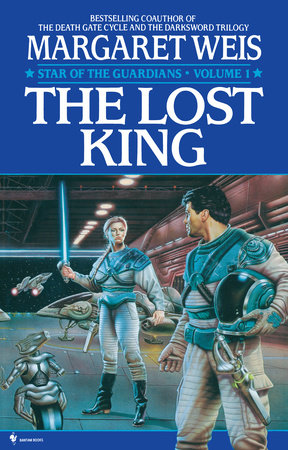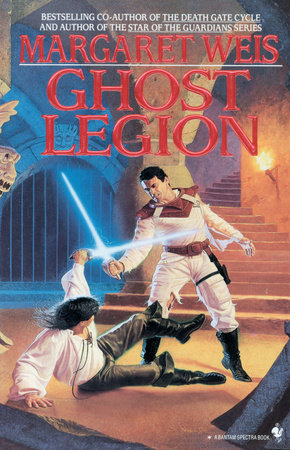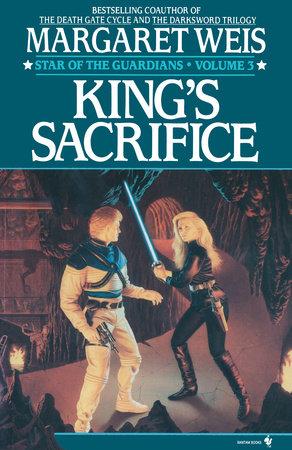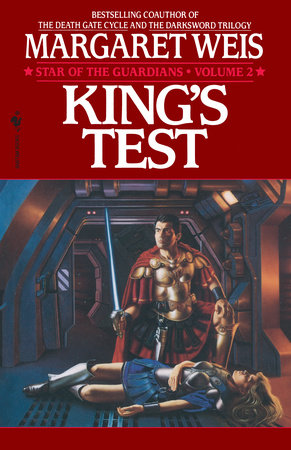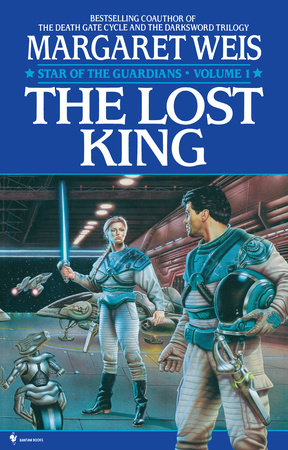Excerpt
The Lost King
Chapter One
“I shall be as secret as the grave.”
Miguel de Cervantes, Don Quixote
The man in the white coat watched a bright line of blips scitter across his portable monitor’s screen in irregular bursts and pulses.
“Finally!” he muttered, mopping his sweating brow with the starched sleeve of his coat. He glanced around distractedly, having been so intent upon his work that he had forgotten, momentarily, where he was. “You”—he motioned to a guard, faceless in a gleaming, feather-crested helmet, who stood at rigid attention in the doorway—“inform his lordship that the subject is ready.”
“Yes, Dr. Giesk.”
The centurion turned immediately. He did not run down the glistening corridors of the deserted university building in search of his supreme commander. Running would have been a serious breach of discipline. The soldier certainly marched double-quick time, however, while two of his comrades, left behind standing duty in the doorway, exchanged relieved glances beneath the visors of their crested, Romanesque helmets. The Roman touch was a whim of their lord, a fancy. The uniforms were designed to dazzle, to intimidate, to look well on the vids. Going into battle, they would have worn the standard plastisteel armor. This wasn’t battle, however. This was a torturing—formal, ceremonial. And their lord had been growing impatient.
Heavy, measured footsteps could be heard advancing down the corridor. The centurions snapped to attention, their already stiff bodies achieving a state of rigidity normally approached successfully only by rigor mortis. The clenched fists of their right hands thudded against their armor-plated chests—over their hearts—in salute as a tall man entered the room that had been, only a few days before, a chemistry lab.
“Ah, Dr. Giesk. I was beginning to think you might fail me.”
The deep baritone voice was emotionless, almost pleasant and conversational. But Dr. Giesk shuddered. Failure was a word the Warlord never spoke twice to any man. The doctor could not remove his hands from the controls of his delicate equipment, but he managed to give the Warlord a beseeching look.
“The subject proved unusually resistant,” Giesk quavered. “Three days, my lord! I realize he was a Guardian, but none of the others held out that long. I can’t understand—”
“Of course you can’t understand.”
The Warlord’s voice was dispassionate, but Giesk could have sworn he heard the man sigh. Stepping around overturned desks, his boots crunching broken glass beakers and tubes, the Warlord approached a steel table that had been hastily wheeled into the lab—now deemed “interrogation chamber.” Upon that table lay a human. Small white dots of a plastic-like substance had been placed upon the man’s head and chest. Thin beams of light ran from the dots to the doctor’s machine, holding their victim in their grasp like the delicate legs of a spider. The man’s naked body twitched and jerked spasmodically. Traces of blood stained his mouth, nose, and chest. No blood marred the floor or the gleaming steel of the table. The centurions had made certain all was clean. Their lord demanded things be neat.
The Warlord stared down impassively at the man on the table. The lord’s stern face was visible only from the nose down beneath his gleaming crested helmet that, like those of his guards, had been copied from the early Romans. The face might have been made of the same metal as the helmet, for it registered no emotion of any type—no elation, no triumph, no pity. The Warlord laid a guantleted hand upon the quivering chest of the man with as little regard as he would have laid that same hand upon the man’s coffin. Yet, when the Warlord spoke, his voice was soft, tinged with a sadness and, it seemed, regret.
“Who is there left now who understands, Stavros?”
The gloved fingers touched a jewel the man wore around his neck. Hanging from a silver chain, the jewel was extraordinarily beautiful. Giesk had been eyeing it greedily during the last three days, and the doctor could not refrain from casting a jealous glance at the Warlord when he fingered it. Carved into the shape of an eight-pointed star, the gleaming jewel was the only object worn by the naked man, and it had been left around his neck by the Warlord’s express command.
“Who knows of the training, the discipline, Stavros? Who remembers?”
Again, Giesk thought he heard the Warlord sigh.
“And you. One of my best.”
The man on the table moaned. His head moved feverishly from side to side. The Warlord watched a moment in silence, then bent close to speak softly into the man’s ear.
“I saved your life once, Stavros. Do you remember? It was at the Royal Academy. On a dare, you had climbed that ridiculous thirty-foot statue of the king. You were what—nine? I was fifteen and she …” the Warlord paused, “she would have been six. Yes, it was soon after she came to the Academy. Only six. All eyes and hair, wild and lonely as a catamount.” His voice softened further, almost to a whisper. The man on the table began to shiver uncontrollably.
“Frozen with fear, Stavros, you hung onto the statue’s arm. It would not bear my weight, and so it was she who crawled out to you, carrying the rope that would save your life. Can you see her, reaching out her hand to you? Can you see me, holding the ropes, holding the lives of both of you in my hands?”
The man’s body convulsed.
“Fascinating,” murmured Giesk with professional interest, monitoring his instruments. “I haven’t been able to elicit a response that strong in three days.”
The Warlord moved his hand up to the man’s head, the gauntleted fingers stroking back the graying hair almost caressingly. “Stavros,” commanded the Warlord, his helmeted visage bending over the man. “Stavros, can you hear me?”
With what appeared to be a violent effort, the man wrenched his head back and forth. He wasn’t, it seemed, negating the fact that he could hear the voice from his past. He was negating the horror.
“That was the night we discovered, she and I, that we were mind-linked. None of you could understand. I could not understand myself, then, and thought bitterly it was a cruel joke played upon me by the Creator, who seemed to have played cruel jokes upon me from my birth.”
It occurred to Giesk that he was hearing the story of the Warlord’s childhood. The subject of many rumors among the men under the Warlord’s command, his past had become legend. Giesk foresaw nights of numerous rounds of free drinks in the officer’s club, all present calling on him to repeat what he was hearing this day in this strange situation.
“The bastard son of a High Priest, a man whose inability to control his passions caused him to break his vow of chastity. I was his penance—a daily reminder to him of his sin. He accepted it, never shirked it, but from that day I was left in his care to the day of his death he never spoke. By the king’s command, I was sent to the Academy. You hated me, didn’t you, Stavros? Hated me because I was smarter, stronger, better than all the rest of you. You hated me, and feared me, and respected me.”
The man on the table made a gasping sound. Giesk, monitoring his instruments, saw the need for haste but hesitated to interrupt the Warlord, who seemed to have forgotten the presence of anyone else in the room except the naked man.
“But as much as you hated me, you loved her. Barbarian child of a barbarian king, she came to the Academy—the first female student ever admitted, and that only because she’d been thrown out of the girl’s Academy. Rescuing you, saving your life, Stavros—it was then that she and I discovered that we could speak to each other without words—our minds, our hearts, our souls were one.” The Warlord fell silent, perhaps walking the paths of the past.
Were those paths dark and twisted? wondered the doctor. Or did they run straight and true, leading those two children inexorably to their fate?
“My lord,” ventured Giesk, “his heartbeat grows increasingly erratic—”
The past slammed down its iron gate of no return.
“Stavros,” said the Warlord, “you have held out long against the torture—as you were taught. Our masters would have been proud of you. None of the others were able to withstand half so much, as you must surely know since it was they who betrayed you. But resistance is useless now, my old friend. You have no will of your own. You must do whatever I ask. And I am going to ask you only one question. One question. You will answer. And then I will release you from this torment. Do you understand?”
The man on the table made a slight moaning sound. A froth of blood appeared on his ashen lips.
“Be quick, my lord!” cried Dr. Giesk, “or you will lose him!”
The Warlord brought his face so near to that of his victim that his breath touched the man’s skin, displacing the bubbles of blood and saliva on the gaping mouth.
“Where is the boy?”
The man shivered, fighting with himself. But it was useless. The Warlord regarded him intently. The gauntleted hand moved to rest upon the cold white forehead.
“Stavros?”
In a wild, tortured shriek, the man screamed out words that made no sense to Giesk. He glanced at the Warlord uncertainly.


